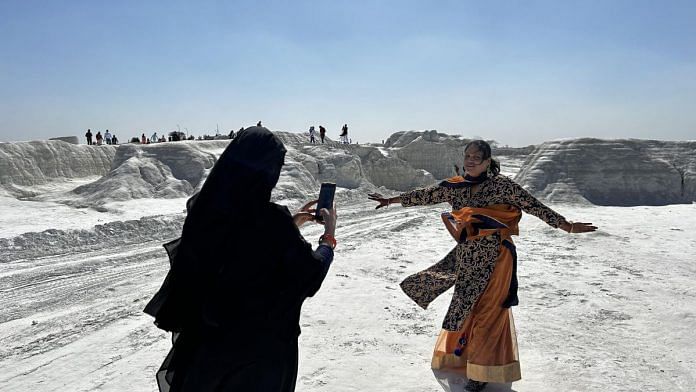The All India Muslim Personal Law Board, an institution that does not have the legal authority to enforce its decisions holds significant influence within the Muslim community and has consistently opposed the Uniform Civil Code. After the Prime Minister recently stressed on the need for a UCC, the AIMPLB promptly arranged a meeting and requested for an extension of the 30-day Law commission deadline for submitting its views on adopting a UCC.
According to the AIMPLB website, the organisation is a unified platform representing all Muslims, established to safeguard Sharia laws and foster unity within the Muslim community. However, upon closer examination, it becomes apparent that the body is primarily a personal endeavor of scholars, religious leaders, and seminary instructors.
The organisation came into existence in 1972-73 to reject the Adoption Bill, which was to be adopted as a part of the Uniform Civil Code. Since its inception, it has consistently maintained that the application of ‘sharia’ falls outside the purview of India’s judicial system. Following the Supreme Court’s verdict that mandated spousal maintenance for Shah Bano, an elderly and impoverished woman who had been expelled from her marital residence by her husband, who had resorted to the Sharia-sanctioned practice of triple talaq, the nation witnessed widespread and violent protests. These protests were supported by religious scholars (ulema) and received support from the AIMPLB.
Also read: UCC is Modi’s nuclear button—split Indian politics between Hindu-lovers, Muslim-appeasers
Opposing progressive laws
The Shah Bano case served as a significant historical event that shed light on the true nature of AIMPLB’s objectives. Despite their claims to represent the interests of Muslims, the organisation has consistently opposed women’s equality and gender justice. The AIMPLB’s committee lacked female representation, which is not surprising considering their inclination to preserve patriarchal interpretations of Sharia, which predominantly impact women’s lives. In 2015, after a prolonged struggle, the AIMPLB established a women’s wing to ensure the inclusion of women’s perspectives. The organisation dissolved this women’s wing in less than seven years. Facing backlash, they had to reinstate the women’s wing in February 2023. However, this reinstatement raises doubts about the genuine impact and influence it can have as it appears an act of tokenism rather a sincere commitment to women’s representation and rights.
AIMPLB is deeply patriarchal. And the organisation holds an unreasonable stance when it comes to safeguarding existing Sharia laws, often neglecting to critically assess the validity of their positions. A prime example of this is their opposition to the abolition of instant triple talaq. AIMPLB argued against its abolition, claiming that if husbands were unable to divorce their wives as they pleased, it could lead to potential harm or even murder. This line of argument follows a victim-blaming attitude, akin to questioning whether women behaved appropriately to avoid being subjected to rape.
It is worth noting that several Muslim-majority nations such as Pakistan, Bangladesh, Malaysia, Algeria among others have already abolished instant triple talaq, which raises the question of why AIMPLB remains so adamant in its position. The reason behind their staunch stance lies in the preservation of their own existence. While Sharia is a man-made interpretation of law and subject to change, according to different interpretations, AIMPLB argues that Sharia is divine and necessary to define one’s Muslim identity. By this definition, Muslims living in countries where they abide by secular laws and the laws of the land would no longer be considered Muslims. Muslims in India do not adhere to Sharia in criminal matters, further highlighting the selective application of these principles.
AIMPLB also exhibits casteist and classist characteristic, as majority of its members come from the Ashraaf castes and upper socio-economic backgrounds. They often fail to understand or acknowledge the realities faced by ordinary Muslims, particularly those belonging to the Pasmanda community. These communities have distinct cultural differences from those in Arab countries. However, in the name of Sharia, the AIMPLB tends to prescribe laws based on their own cultural perspectives. Take this for example. Majority of Muslims do not practise polygamy and divorces are not socially acceptable. Hence, banning polygamy would make sense to protect the interests of ordinary Muslim women. However, the AIMPLB consistently opposes such measures.
Also read: India went to Myanmar to hunt down Manipur soldier killers. Now, it’s letting them slip away
Patriarchy at play
The AIMPLB strongly opposes the Right of Children for Free and Compulsory Education Act 2009, on the grounds that it interferes with the traditional madrassa education system. Their opposition also extends to the Child Marriage Restraint Act, which was amended in 1978 to set a minimum age of 18 for girls and 21 for boys for marriage. Additionally, it is disheartening to witness an organisation in the 21st century that discriminates against the Ahmediyyas, thereby perpetuating religious discrimination.
AIMPLB’s own existence lies into preserving patriarchal interpretation of sharia, even though they lack legal or official approval. They can be likened to khap panchayats, where they establish a parallel judiciary system exclusively for Muslims, leading to the oppression of women. Their rationale is straightforward: Indian courts are not authorised to interpret or apply Sharia, which is derived from the Quran and the Hadith. This authority, according to them, rests solely with the ‘Sharia courts.’ As an NGO, their influence and power diminishes if a UCC is implemented, as it would establish a legal framework that does not require religious interference. Therefore, it is inherent in their nature to oppose any reform or the implementation of a UCC.
Amana Begam Ansari is a columnist and TV news panelist. She runs a weekly YouTube show called ‘India This Week by Amana and Khalid’. She tweets @Amana_Ansari. Views are personal.
(Edited by Anurag Chaubey)



